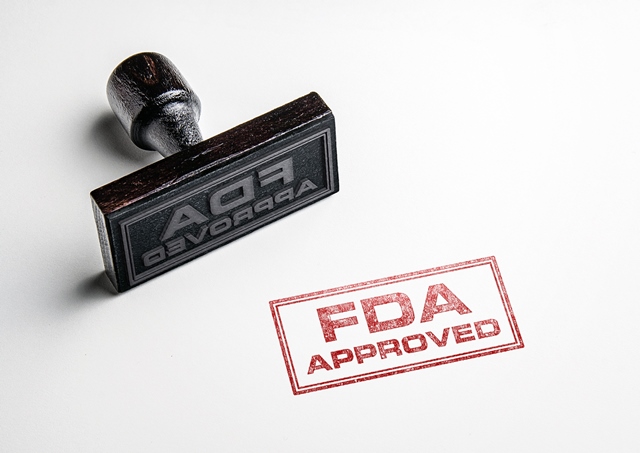The U.S. Food and Drug Administration (FDA) has approved Kite’s Yescarta® (axicabtagene ciloleucel) CAR T-cell therapy for adult patients with large B-cell lymphoma that is refractory to first-line chemoimmunotherapy or that relapses within 12 months of first-line chemoimmunotherapy.
Yescarta demonstrated a clinically meaningful and statistically significant improvement in event-free survival (EFS; hazard ratio 0.398; P< 0.0001) over the current standard of care (SOC) that has been in place for decades.
EFS was determined by blinded central review and defined as the time from randomization to the earliest date of disease progression, commencement of new lymphoma therapy, or death from any cause.
Additionally, 2.5 times more patients receiving Yescarta (40.5%) were alive at two years without disease progression or need for additional cancer treatment, after their one-time infusion of Yescarta vs. SOC (16.3%), and the median EFS was four-fold greater (8.3 months vs. 2.0 months) with Yescarta vs. SOC.
Yescarta is also being reviewed by global regulatory authorities for additional indications inclusive of the ZUMA-7 patient population. ZUMA-7 is considered a landmark trial for being the first and largest trial of its kind, with the longest follow-up.
The National Comprehensive Cancer Network (NCCN) recently updated its Clinical Practice Guidelines in Oncology for B-cell Lymphomas to include Yescarta for “Relapsed disease <12 mo or Primary Refractory disease” under Diffuse Large B-cell Lymphoma (DLBCL) as a Category 1 recommendation. Yescarta is the first CAR T-cell therapy to receive a NCCN Category 1 recommendation. NCCN defines Category 1 as recommendations based upon high-level evidence with uniform NCCN consensus that the intervention is appropriate.
Christi Shaw, Chief Executive Officer of Kite, said: “Kite started with a very bold goal: creating the hope of survival through cell therapy. Today’s FDA approval brings that hope to more patients by enabling the power of CAR T-cell therapy to be used earlier in the treatment journey. This milestone has been years in the making. On behalf of the entire Kite community, we would like to thank the patients and physicians who have been on this journey with us. You are what drives us every day to explore the full potential of cell therapy.”
CAR T-cell therapies are individually made starting from a patient’s own white blood cells, called T-cells. The cells are removed through a process similar to donating blood and sent to Kite’s specialized manufacturing facilities where they are engineered to target the patient’s cancer, expanded, and then returned to the hospital for infusion back into the patient. Referring physicians and patients can immediately begin accessing Yescarta CAR T-cell therapy for this new FDA-approved indication through Kite’s 112 authorized treatment centers across the U.S.
Frederick L. Locke, MD, ZUMA-7 Principal Investigator and Co-Leader of the Immuno-Oncology Program at Moffitt Cancer Center, Tampa, Florida, said: “Today’s approval marks an exciting new standard of care. The ZUMA-7 trial enabled us to look at the broader picture of what happens to patients after a decision is made to follow a particular treatment path. What we found was that axi-cel resulted in three times as many patients receiving treatment with curative intent (CAR T-cell therapy), and an overall better outcome for patients than the previous standard of care. Additionally, we have now amassed significant experience with CAR T-cell therapy to better manage or prevent side-effects, making this treatment more accessible for older patients and those with medical conditions for whom the standard of care might be difficult.”
SOC therapy for this patient population has historically been a multi-step process expected to end with a stem cell transplant. The process starts with chemoimmunotherapy, and if a patient responds to and can tolerate further treatment, they move on to high-dose chemotherapy (HDT) followed by a stem cell transplant (ASCT).
Jason Westin, MD, MS, FACP, ZUMA-7 Principal Investigator, Director, Lymphoma Clinical Research, and Associate Professor, Department of Lymphoma/Myeloma at The University of Texas MD Anderson Cancer Center, said: “Definitive clinical trial results such as these do not come along often and should drive a paradigm shift in how patients with relapsed or refractory LBCL are treated moving forward. Patients who do not respond to or relapse after initial treatment should quickly be referred to a CAR T-cell therapy authorized treatment center for evaluation.”
Lee Greenberger, PhD, Chief Scientific Officer of The Leukemia & Lymphoma Society (LLS), said: “LLS was an early supporter of CAR T-cell therapy research, and to be able to see this innovative advance become available as an earlier line of treatment is truly remarkable. Current standard of care is a difficult process for patients, and no one knows at the start who will make it to stem cell transplant. With today’s FDA decision, patients will have earlier access to this potentially curative treatment.”
Yescarta was initially approved by the FDA in 2017 based on the ZUMA-1 trial for a smaller population of LBCL patients who failed two or more lines of therapy. The ZUMA-1 trial has recently reported durable 5-year survival results, with Yescarta showing 42.6% of study patients alive at 5 years and that 92% of those patients alive at 5 years have needed no additional cancer treatment at this important milestone.


